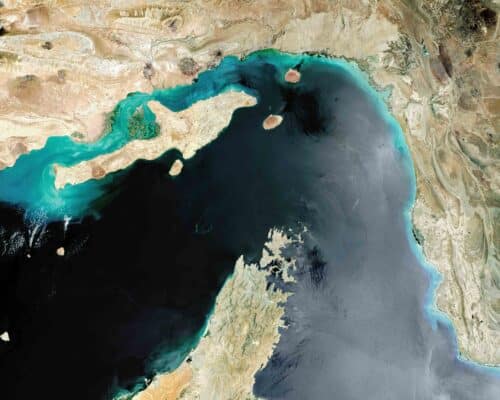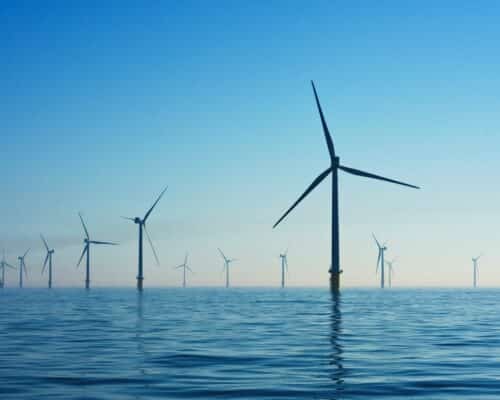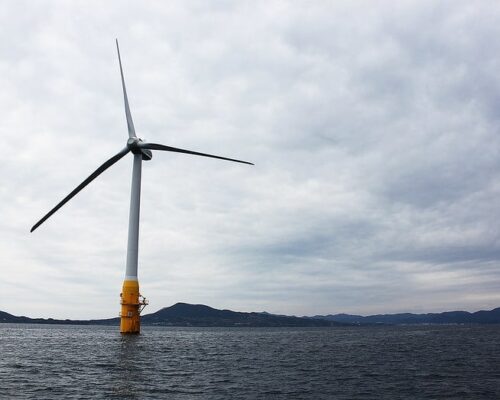Feature Of The Month

Japan Most at Risk from Disruption in the Strait of Hormuz
Japan’s economy relies on access through the Strait of Hormuz, two-mile-wide shipping lanes that carries 80% of the crude and LNG the country burns daily. With regional tensions simmering, even a brief blockade of the Strait could send energy prices skyrocketing and highlight Tokyo’s need to accelerate its pivot to domestic renewables.

Offshore Wind Offers South Korea Huge Economic Opportunities: GWEC
According to the GWEC, offshore wind power can bring South Korea 770,000 new jobs and 87 trillion won (USD 63 billion) in investments over seven years. However, unlocking these gains requires a holistic plan where the government and stakeholders collaborate to introduce favourable supporting policies and advance community-focused offshore wind deployment.

Southeast Asia Economy: Waiting for Green Investments
A new report by Bain & Company, GenZero, Standard Chartered and Temasek emphasises the necessity of significant investments to bolster the green energy shift in Southeast Asia. It highlights the inadequate current actions towards this transition and notes the challenge of meeting decarbonisation objectives amid rising energy needs in the region.

The Climate Leadership of the G7 Now Hangs on Japan
Without ensuring that all members share the same views regarding the energy transition, the G7 will have difficulty leading global climate policy. Convincing Japan of the urgency of phasing fossil fuels out and accelerating clean energy adoption is integral before the G20 and COP29 meetings later this year.
Renewable Energy Investments in Vietnam in 2024 – Asia’s Next Clean Energy Powerhouse
The boom of renewable energy in Vietnam has made the country a global leader in sustainability and a top clean energy investment destination.

Japan’s Offshore Wind Revolution
Surrounded by windy oceans, Japan has tremendous offshore wind potential. For Japan to reach its 2040 offshore wind target, it would need 22,500 wind farms the size of Goto City’s. If the amendments in parliament are passed, Japanese wind manufacturers can export their technology to wind markets abroad. In that case, Japan will have no reason to continue its false solutions of ammonia co-firing and fossil fuel investments.
Japan’s Energy Policy Is Turning It Into the World’s Climate Villain
Japan is quickly becoming the odd one at the table of the G7 regarding climate policies. Scientists, analysts and environmental and societal groups see it as the culprit of climate change inaction. It is time for Japanese governmental and corporate leadership to change that perception.
COP28: Qatari and US LNG Uptick To Throw Climate Goals Into Chaos
COP28 Dubai could be jeopardised by massive new LNG investment by Qatar and the US as the world attempts to move away from fossil fuels.

Bangladesh’s Energy Needs and a Fair and Just Energy Transition
The switch towards renewable energy will not be the main threat to Bangladeshis' jobs and well-being. It's climate change.
The Biggest Renewable Energy Market Jump in 2023 and 2024
The IEA's June 2023 Renewable Energy Market Update forecasts an unprecedented wind and solar power boom globally.

Vietnam Has Approved the PDP8: What Comes Next?
The approval of the PDP8 is finally here. While not without its potential flaws, the plan allows Vietnam to start leaping towards its net-zero by 2050 target – a moment that energy investors have long been waiting for.
European Green Deal: What Asia Can Learn
Following the shining example of EU member states and designing policies similar to the European Green Deal can help developing Asia build a more resilient, sustainable and cost-efficient energy system.

Companies’ Climate Pledges: A New Report Unveils the Reality
While no company is perfect, there are clear leaders that others should strive to follow. In the end, decarbonisation should be a common goal that can only succeed through collective efforts. And there is no sector better positioned to lead the global efforts in addressing climate change than the tech industry.
Most Popular
Categories
-
10
-
34
-
126
-
4
-
17
-
46
-
52
-
11
-
10
-
15
-
24
-
6
-
1
-
5
-
6
-
282
-
200
-
17
-
24
-
1
-
1
-
23
-
41
-
44
-
88
-
18
-
86
-
41
-
17
-
11
-
43
-
54
-
86
-
299
-
22
-
44
-
36
-
10
-
42
-
36

